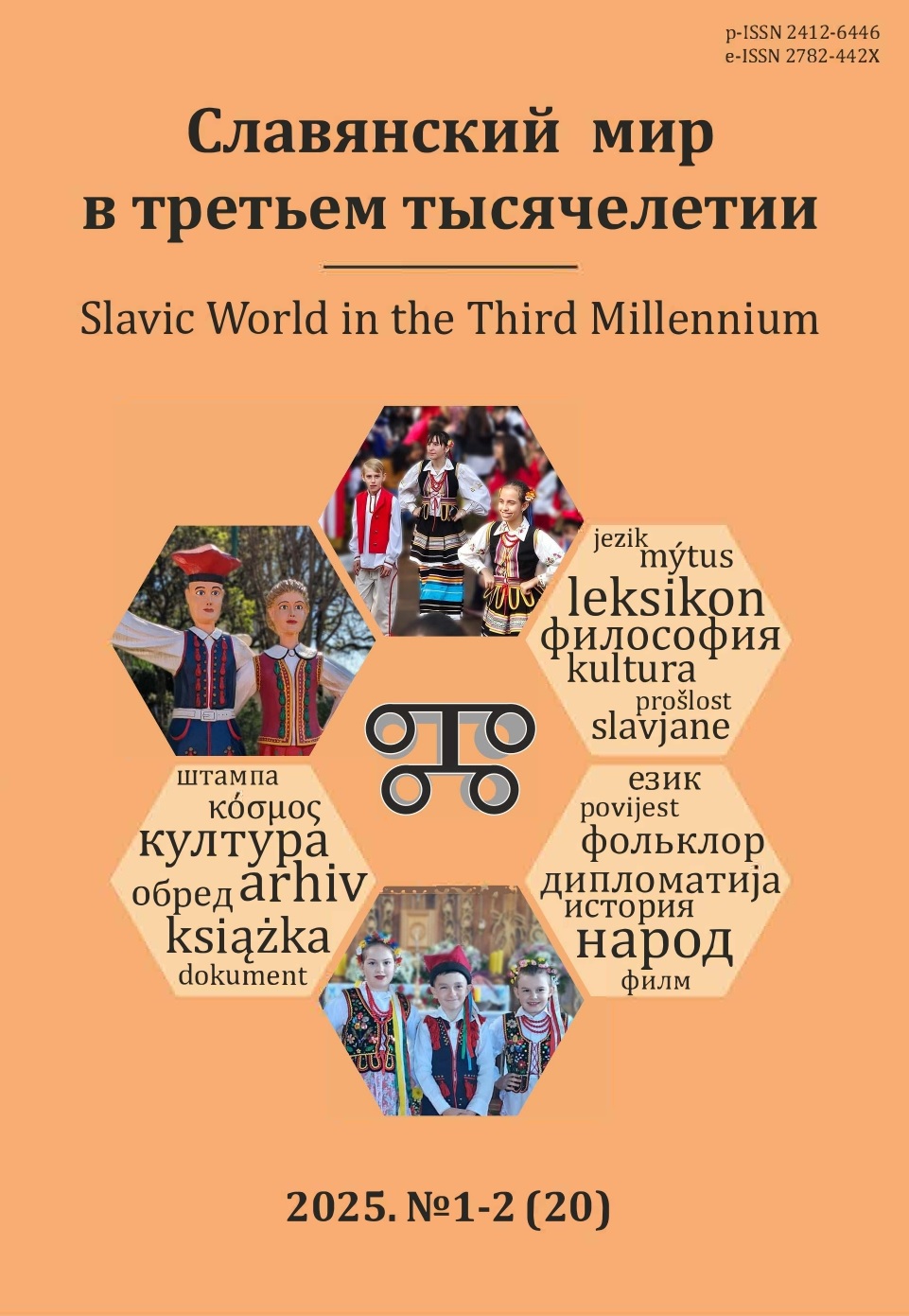Some Features and Sources of Radical Slavic Neopaganism
DOI:
https://doi.org/10.31168/2412-6446.2025.20.1-2.05Keywords:
Slavic neo-paganism, Rodnovery, Aryan myth, Völkische BewegungAbstract
Radical Slavic neopagan movements have a number of common features; Radical Slavic neopaganism is a relatively integral phenomenon, including ideas about the original Slavic («Slavic-Aryan») tradition, the great antiquity of the Slavs, Slavic ancient knowledge, «Vedic religion and culture», which were lost due to evil forces, but recently this knowledge has been revived, Jews as a «Semitic race», opponents of the «Slavic-Aryans», Christianity being described as a religion created to enslave the Slavs, the worship of supposed Slavic gods and spirits, or, at least, an ideological interest in this topic, attempts to reconstruct or construct Slavic pre-Christian worldviews, beliefs and rituals. The Aryan myth and its various «Slavic» variations, are the central place of radical Slavic neopaganism. The ideological continuity is visible in three important books for the Aryan narrative, published at the end of the 19th and later in the 20th century: works by Houston Chamberlain, by Alfred Rosenberg and by Valery Yemelyanov, one of the founders of Russian neopaganism. Esotericism is another source of radical Slavic neopaganism: not only well-known esoteric teachings, including the theosophy of Helena Blavatsky, but also its far-right versions. Esoteric Hitlerism, created by the Chilean diplomat Miguel Serrano from the end of the 1970s, was a source of the Slavic nеоpagan Ynglism, created by the Omsk esotericist Alexander Khinevich, in the 1990s. The main movements of Slavic neopaganism are similar to the old German Völkische Bewegung, as well as to the modern neopagan neo-völkisch movement, they are also probably related to each other, so Slavic neopaganism can be called «Slavic völkische». Not all currents of Slavic neopaganism are associated with far-right ideologies. Researchers can consider neopaganism as a complex worldview based on the path of personal self-improvement. The conclusions of this article are preliminary and require further research.
Received 19 January 2025
Revised 11 February 2025
Accepted 24 March 2025
For citation: Omonov, N. N., 2025. Some Features and Sources of Radical Slavic Neopaganism. Slavic World in the Third Millennium, 20 (1–2), pp. 85–103. https://doi.org/10.31168/2412-6446.2025.20.1-2.05



